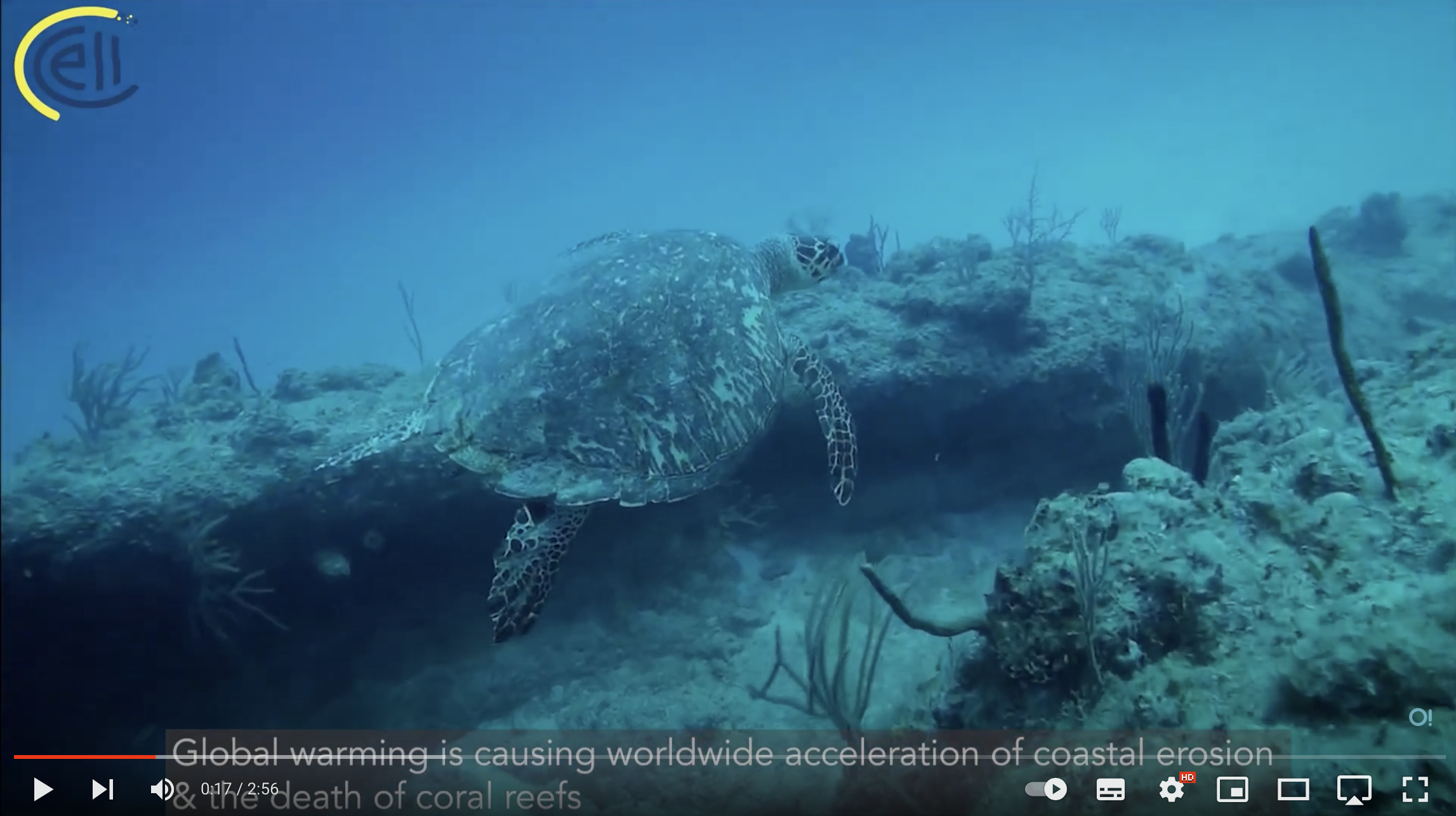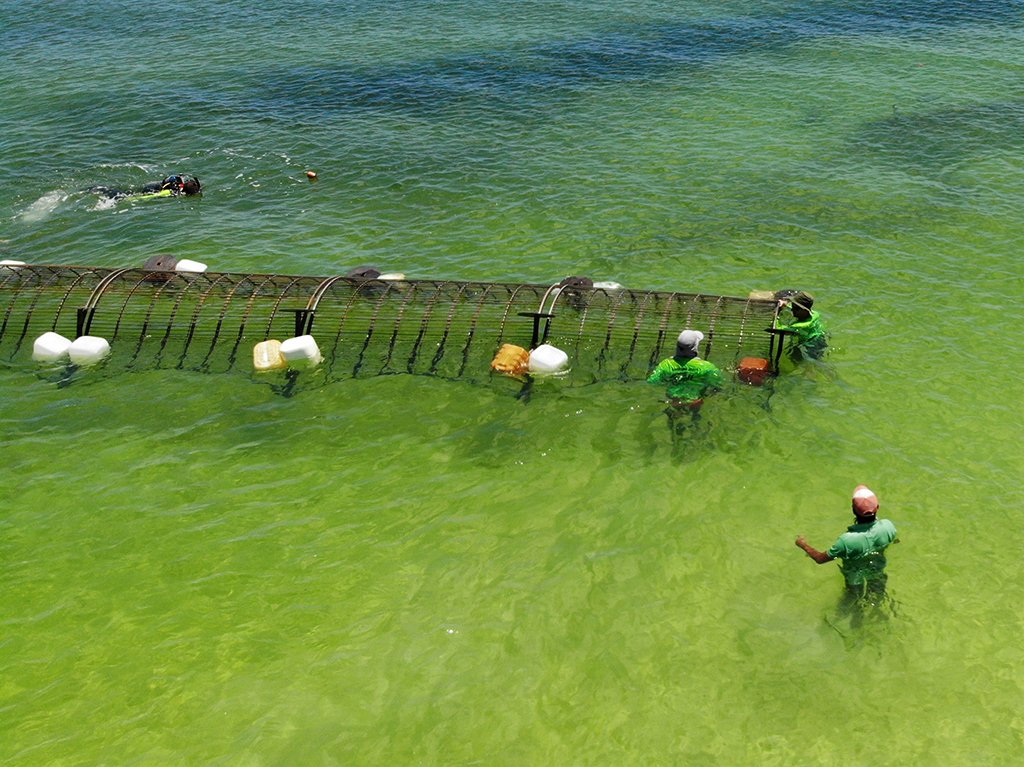THIS LIVING ARTIFICIAL REEF HELPS COMBAT COASTAL EROSION: WILL BATEMAN FROM CCELL
Without climate mitigation and adaptation, half the world’s beaches could disappear by the end of the century due to climate change-induced coastal erosion and rising seas, according to a study published in the journal Nature Climate Change. Coral reefs have been a hero in protecting our coastlines, but climate change is impacting them too. Luckily, one ocean impact startup has a solution to grow digitised living reefs that help combat coastal erosion.
For the fifth episode of our Pitchfest 2022 Series on the Ocean Impact Podcast, we chatted to CCell CEO Dr Will Bateman about how they’re helping combat the impacts of coastal erosion by growing digitised, living, artificial reefs.
CCell creates sea-powered protection, building reefs to combat coastal erosion by working in harmony with nature to restore a sustainable balance to coastal environments and bring lasting protection to communities around the world.
Coral reefs are important. Period. Not only do they promote biodiversity, provide vital ecosystems for life underwater, and benefit economies through jobs, tourism, and more: they also provide natural coastal protection. But climate change is impacting the health of reefs around the world, as well as contributing to sea level rise, stronger waves, and more severe storms. All these things contribute to worsening coastal erosion.
Coral reefs create natural barriers that protect coastlines from erosion
What Causes Coastal Erosion
Coastal erosion is when rocks, soils, and/or sands along the coast are worn down or carried away as a result of sea level rise, strong wave action, and coastal flooding.
Coral reefs - as well as seagrasses and mangroves - protect coastal regions and increase their resilience against these natural hazards, in fact, coral reefs can reduce wave energy by an average of 97%. But reefs also face growing threats due to climate change.
CURRENT SOLUTIONS FOR COASTAL EROSION
As Dr Will Bateman mentions in the episode, traditional methods haven’t changed much since ‘the Romans.’ Now however, it’s done on a larger scale. Shoreline hardening is the process of protecting the shoreline with structures such as seawalls. But these projects can interfere with natural water currents and prevent sand from shifting along coastlines.
Additionally, these types of protective measures can cause erosion to adjacent beaches and dunes. And worse still, shoreline hardening is recognised to reduce ecosystem services that coastal populations rely on. Seawalls tend to support lower biodiversity and fewer organisms than natural, living shorelines. In some places, locals have seen public beaches suffer as a result of vertical seawalls being installed. These can cause waves to reflect straight off the wall, resulting in more rapid and greater erosion, and a slower beach recovery.
CCell’s Solution
CCell has developed a solution to grow digitised living reefs through a process called mineral accretion. They start by building a structure (a modular design that can be stacked) and running a low, safe electrical current to it. This causes seawater minerals to crystallise into the same calcareous rock that is found in natural reefs, which is a perfect substrate for plants and coral to attach to.
Within months, the entire structure transforms into a living reef that adapts and evolves with time. Plus, it can be powered by renewable energy such as wind, solar, or even CCell’s wave energy extraction technology.
A CCell reef system being installed, this is what the structure looks like before the mineral accretion process.
How do CCell’s reefs combat coastal erosion?
CCell’s high-tech structures help dampen waves by both inducing turbulence, and by causing them to break before they impact the shore.
Pictured: Wave modelling to assess the impact the CCell reef has on the strength of large waves [ccell.eco]
Much like natural reefs, they selectively reduce the power of large waves (which are typically bad for the shoreline) while its porous structure allows smaller waves (which can be good for the shoreline and help build sand back onto the beach) to pass through unaffected.
This animation shows how a CCell reef can help combat coastal erosion. And what can happen without a reef in place.
According to CCell, their system sensors allow the marine environment to be measured at unprecedented levels. This new data will support wider marine research and provide new insights into the marine ecology of an area.
The CCell system also creates a habitat for marine life and supports the regeneration of marine ecosystems. This can assist in developing ecotourism within a region, with the potential to revitalise the local community and extend marine protected zones. Whilst the reduction of wave power has the added benefit of depositing sand onto beaches, which not only increases protection from storms but also enhances the aesthetics of the coastline.
Advice for Other startups: SImple is beautiful
Dr Will Bateman (CEO of CCell) presenting to members of the Telchac community in Mexico.
Will had a great piece of advice for other ocean impact founders and their team members.
He recalled having someone check out a circuit board he and his team had been working on. It worked, but the person said to Will “but it’s not very beautiful.” Initially, Will was confused, why does it matter if it’s beautiful if nobody is going to see it? But they were right, and in his business journey, Will has learned that simplicity is beauty, it means that things just work.
So his advice to oceanpreneurs and ocean impact startups?
“I don’t think you can ever make something too simple”
Listen and Watch
New episodes of the Pitchfest 2022 Series will be releasing each week. Follow the Ocean Impact Podcast wherever you get your podcasts, or subscribe and watch on Youtube.









